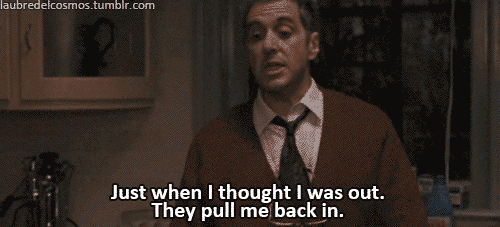A question for full disclosure - did I cheat? To an extent, yes. We - together with several friends - were late to the party. We only properly started Veganuary on the 10th of January, having only came up with the idea of doing it the day before. So truth, we only made it through three weeks of vegan diet, instead of the full month. However, at least speaking for myself, I adhered to the diet as strictly as I could, and I was fully vegan over the period (bar an inadvertent mistake where I didn't realise honey was considered non-vegan-friendly - since honeybees had to produce them!).
Whenever people find out that I am participating in a vegan diet, the two most common responses I've received are: (1) 'why would you do this?', or (2) 'I get it, but I can't do it myself'. The first question is sometimes motivated by genuine curiosity, especially amongst those who are not familiar with the philosophical roots of veganism. Sometimes, this question comes from a more judgemental perspective, carrying a similar tone to, 'Are you mad?', or 'What is the point of this self-torture?'. Those who know me well know that I tend to either get irritable or proud (bizarre, I know) when I become the recipient of judgment, especially on subjects relating to lifestyle or taste. In this scenario I would snarkily reply that 'I just feel like doing it'. Admittedly, this isn't a particularly mature response, but it in no way diminishes the satisfaction of saying it.
If at the time I am able to apply the principle of charity and assume that the other person is genuinely curious about my motivations for Veganuary, I might reply with something akin to a verbal bullet point summary. My verbal bullet point summary (written out, now just an ordinary bullet point summary) has three points:
Personal challenge - see if I could do it
Reduce animal suffering
Do my part for climate change
Clearly, a more morally preferable ordering of motivations would be to prioritise (2) and (3) due to their altruistic nature. If you count pride or ego as one of your motivations, it would seem to diminish, or even defeat the entire purpose of the entire Veganuary challenge. Yet it seems to be the case that ego is primal, whereas altruism is more complex, requiring empathy, logical reasoning, and an abundance mindset. Arguably, all of these pre-requisites are skill-based; it takes effort and reflection for one to recognise that they are slipping on them, and that intentional action is required for rectification. In other words, altruism takes work.
It's worth clarifying that this in no way means I have little empathy for the countless animal souls that have suffered under industrial farming practices, or that I am indifferent to the effects of climate change. It is more accurate to describe that I recognise certain primal instincts as powerful motivators for (consequentially speaking) virtuous acts, and that when they are combined with 'truly' virtuous intentions to motivate good moral behaviour, one is much more likely, and more frequently, 'do good'. If I had completely rejected leveraging pride as a motivator for Veganuary, I might more likely have failed it, and harmed the good cause as a result.
Here's a good question to ponder: to what extent is it justified to use sinful motivations (think the seven cardinal sins, for instance) to drive morally good action?


